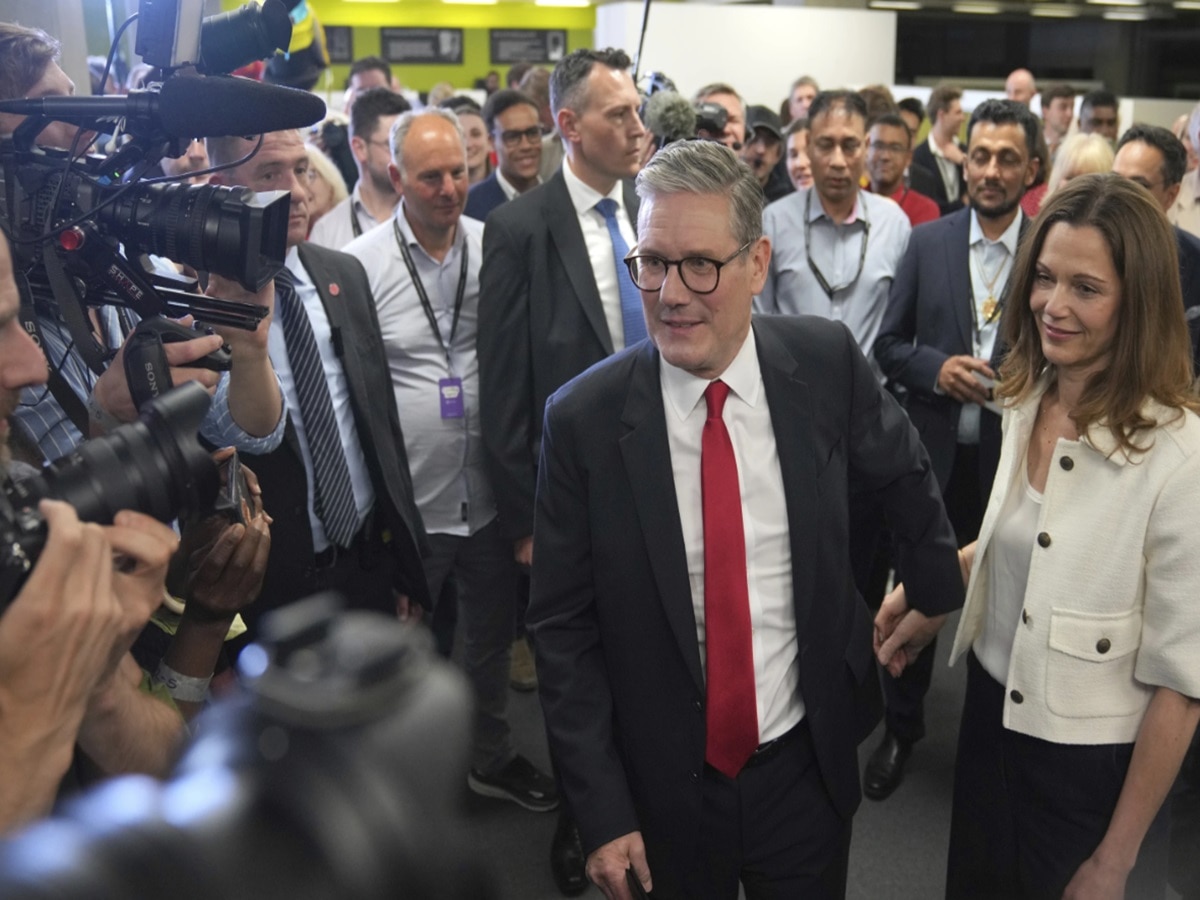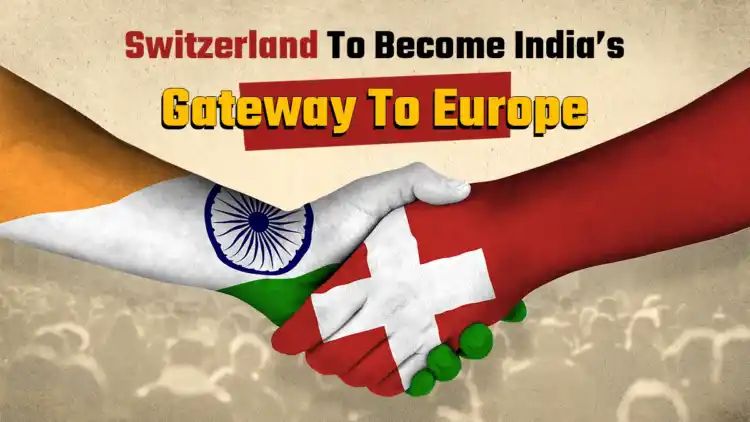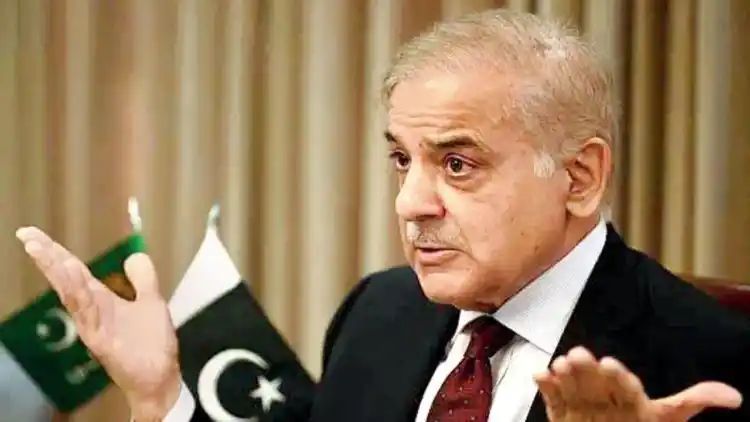UK General Elections: Why Keir Starmer’s Labour Win Could Be A Positive Shift In India-UK Relationship

The Labour Party has emerged victorious in the UK elections exit poll prediction, with Keir Starmer projected to lead the country to a landslide victory. The exit poll conducted by three major TV networks indicates a significant gain for Labour, securing a total of 410 seats, marking a remarkable increase of 209 seats. In contrast, the Conservative Party, led by Prime Minister Rishi Sunak, is facing a devastating defeat, with the exit poll predicting a loss of 241 seats, leaving them with only 131 seats. The Liberal Democrats, once allies of the Conservatives, are projected to secure 61 seats.
Keir Starmer’s leadership, characterized by his background as a human rights lawyer and prosecutor, has been instrumental in reshaping the Labour Party’s image. He campaigned on a platform of change, steering the party away from its hard leftist stance towards a more centrist ideology. “I’ve changed the Labour Party,” he declared.
“I will fight for working people. And I will fight to restore hope and pride in our great country,” he said on the eve of the election.
What Keir Starmer’s Win Means For India-UK Relationship?
Keir Starmer is poised to make a significant impact on UK-India relations if elected Prime Minister. His manifesto includes a commitment to establish a ‘new strategic partnership’ with India, with a focus on a free trade agreement (FTA). This shift in approach marks a departure from the party’s previous stance under Jeremy Corbyn, who was perceived to have an anti-India position, especially concerning Kashmir.
Starmer’s pledge to forge this new partnership demonstrates his proactive stance towards strengthening ties between the two nations. He has actively worked on rebuilding Labour’s relationship with the Indian diaspora, addressing concerns that arose during Corbyn’s leadership. At the India Global Forum (IGF), Starmer emphasized the Labour Party’s transformed perspective on India-UK relations, signaling a new direction in the party’s foreign policy.
He reaffirmed his support for free trade agreements and partnerships that address security, technology, education, and climate change.
Tough stance on anti-Hindu, Khalistan hate
A Labour win with Starmer in charge could see a change in stance on the matters of Hindu hate. Last Friday, visiting the Shree Swaminarayan Mandir in Kingsbury, Starmer had said “there is absolutely no place for Hinduphobia in Britain” and that Labour would “build a new strategic partnership with India”.
“If we’re elected next week we will strive to govern in the spirit of seva to serve you and a world in need,” he said. “Strengthened by Hindu values, you’re not only contributing massively to our economy, you’re bringing innovation and expertise that keeps us competitive on the global market.”
On campaign trips, he has denounced Hinduphobia and stressed the significance of cultural festivals like Diwali and Holi, such as at the Shree Swaminarayan Temple in north London.
The party has also vowed to stamp out anti-India sentiments within its ranks and build a strong strategic partnership with the Prime Minister Narendra Modi-led administration.
And it’s not just words. In April, the party initiated an investigation into one of its Sikh councillors, Parbinder Kaur for allegedly sharing posts that support Khalistani terrorist groups and militants who have assassinated public figures in India.
Last September, Labour also demoted Indian-origin shadow minister Preet Kaur Gill for reportedly having links with pro-Khalistani extremists.
Free FTA with India
The Labour has said it is “ready to go” on striking a free trade agreement (FTA) with India if it wins the elections. Potential areas of growth include trade, investment, technology, and security cooperation, indicating a departure from previous Labour policies towards a more India-friendly stance.
“What my Labour government will seek with India is a relationship based on our shared values of democracy and aspiration,” said Starmer, adding, “… That will seek an FTA, we share that ambition, but also a new strategic partnership for global security, climate security, economic security.”
However, the contentious issue of immigration remains a focal point in British politics, with both Tories and Labour acknowledging the need for reduced immigration but differing on strategies.
New Delhi seeks temporary visas for its service industry workers under the FTA to leverage the UK’s strong presence in banking and IT services. Despite the challenges, Labour is expected to advocate strongly for favorable visa terms, considering the UK’s political landscape.





